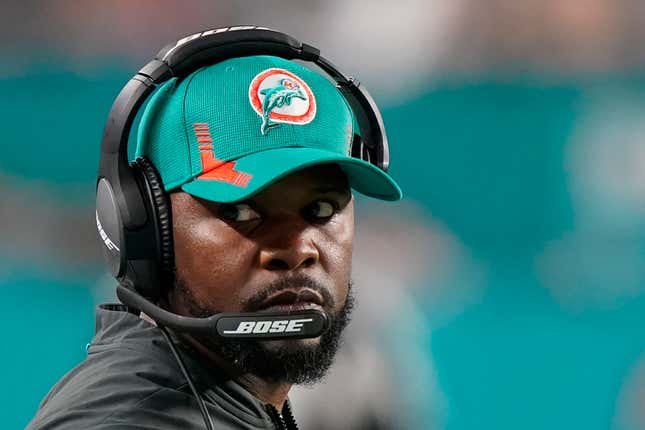
Attorneys for the NFL and three Black coaches suing the league for racial discrimination faced off for the first time in court in a hearing in Manhattan on Monday.
The proceeding featured Loretta Lynch, the first Black woman U.S. attorney general, arguing on behalf of the NFL that a federal judge should force the lawsuit into arbitration–which would shield the case and potentially any settlement from the public’s view. Attorneys for the plaintiffs, including current Pittsburgh Steelers assistant Brian Flores, who brought the original class action claim, rejected that idea as ridiculous given that the arbitrator would be none other than NFL Commissioner Roger Goodell, according to ESPN.
From ESPN.com
Wigdor said the league demonstrated “this unconscionable bias of the arbitrator” when the NFL said the claims in the lawsuit were without merit after it was first filed. He said it would not be fair for Goodell to arbitrate the claims after he earned $120 million over the last two years from the league’s teams.
Flores first filed the lawsuit against the NFL back in February, alleging that the NFL had propped up a system of denying Black coaches the opportunity to lead teams as head coaches, even as it maintains the “Rooney Rule”, which was established two decades ago specifically to increase opportunities for nonwhite coaching candidates.
Flores was fired as head coach by the Miami Dolphins in January after posting a winning season. He was subsequently interviewed by the New York Giants and Denver Broncos, which he alleges held sham interviews with him to comply with the Rooney Rule, and by the Houston Texans, which he says backtracked on offering him a job after he filed the lawsuit.
Last month, two more Black coaches–former Arizona Cardinals head coach Steve Wilks and former Tennessee Titans defensive coordinator Ray Horton, joined the lawsuit. Horton is retired; Wilks is the defensive secondary coach for the Carolina Panthers.
ESPN notes that a judge has “put the lawsuit on the slow track,” meaning it could be months before a decision is made on whether the case will play out in open court as preferred by the plaintiffs or in arbitration as the NFL would like.
At Monday’s hearing, Lynch argued that the coaches’ employment agreements with their former teams required the claim to be heard in arbitration.

